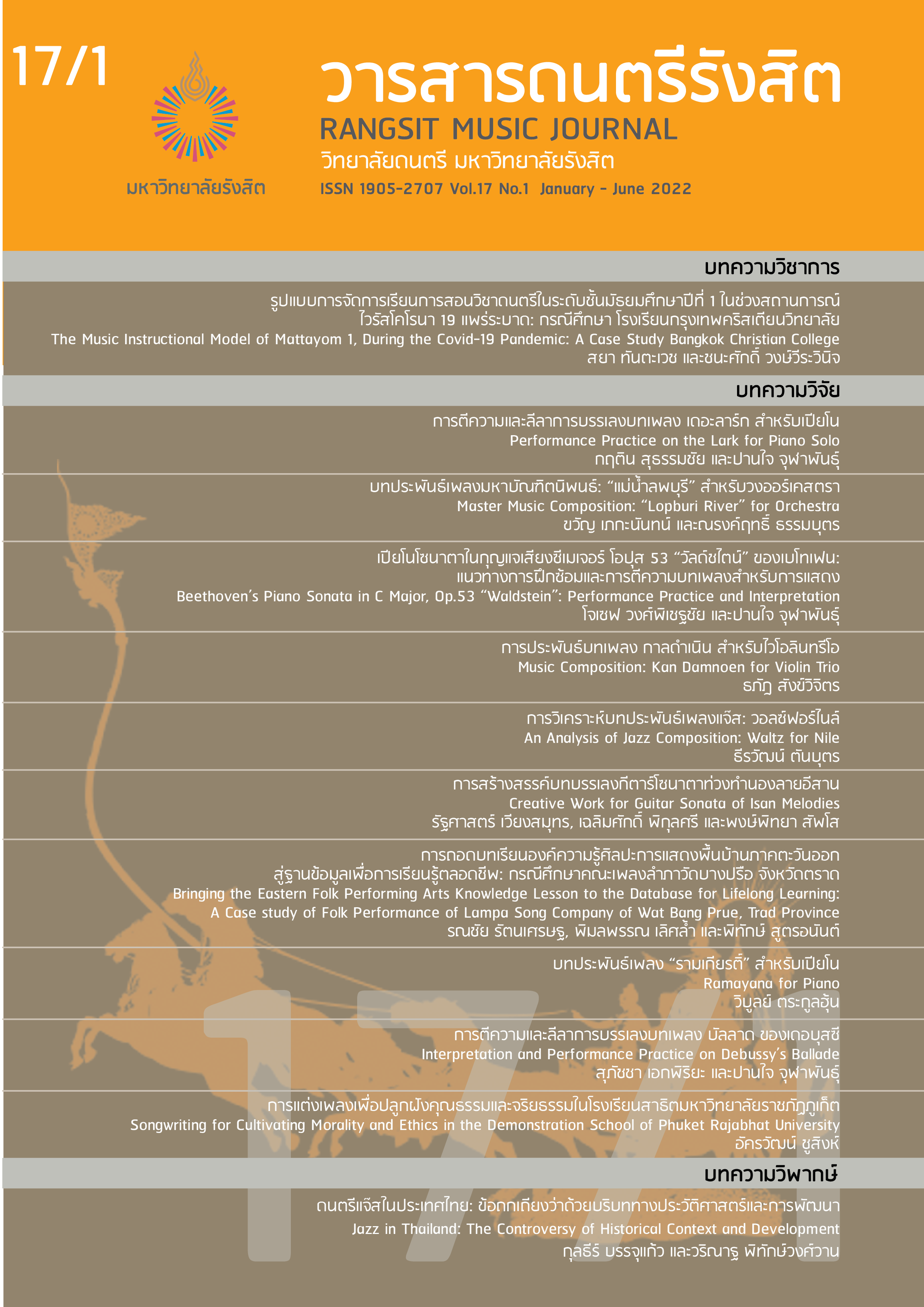Performance Practice on the Lark for Piano Solo
Keywords:
Piano, Performance Practice , The Lark, Michael Glinka, Mily BalakirevAbstract
Piano performance on The Lark, piece No.10 from 12 pieces in a set called Farewell to St. Petersburg Album was composed with poetries by famous Russian poets for voice with piano accompaniment by Michael Glinka (1804-1857), a famous Russian composer as the father of Russian folk songs due to the ability to compose songs with a melodious folk tune. Subsequently, The Lark was transcribed for piano solo by Mily Balakirev (1837-1910). Mily Balakirev is a Russian composer, pianist and conductor who is famous to compose songs in the form of nationalist music by bringing a variety of traditional folk music mixed with classical music. The composer tried to portrait a bird’s flying gestures by using swooping notes up and down on the keyboard. The pianist then will interpret and use specific techniques to convey the exact motions of the bird. The researcher interpreted and practiced in order to achieve the best performance according to the composer’s purpose.
References
ณัชชา พันธุ์เจริญ. พจนานุกรมศัพท์ดุริยางคศิลป์. พิมพ์ครั้งที่ 3. กรุงเทพฯ: เกศกะรัต, 2552.
ปานใจ จุฬาพันธุ์. วรรณกรรมเพลงเปียโน 2. กรุงเทพฯ: สำนักพิมพ์แห่งจุฬาลงกรณ์มหาวิทยาลัย, 2551.
Hoffman, Joanna, and Barbara Miller. “The Lark Lyrics.” Accessed March 22, 2021. https://www.lieder.net/lieder/get_text.html?TextId=9698.
Hofmann, Josef. Piano Playing with Piano Questions Answered. New York: Dover Publications, 1976.
Philip, Robert. The Classical Music Lover's Companion to Orchestral Music. New Haven, CT: Yale University Press, 2018.
Slonimsky, Nicolas. Baker’s Biographical Dictionary of Musicians. 8th ed. New York: G. Schirmer, 1992.
Downloads
Published
How to Cite
Issue
Section
License
Copyright (c) 2022 Rangsit Music Journal

This work is licensed under a Creative Commons Attribution-NonCommercial-NoDerivatives 4.0 International License.







